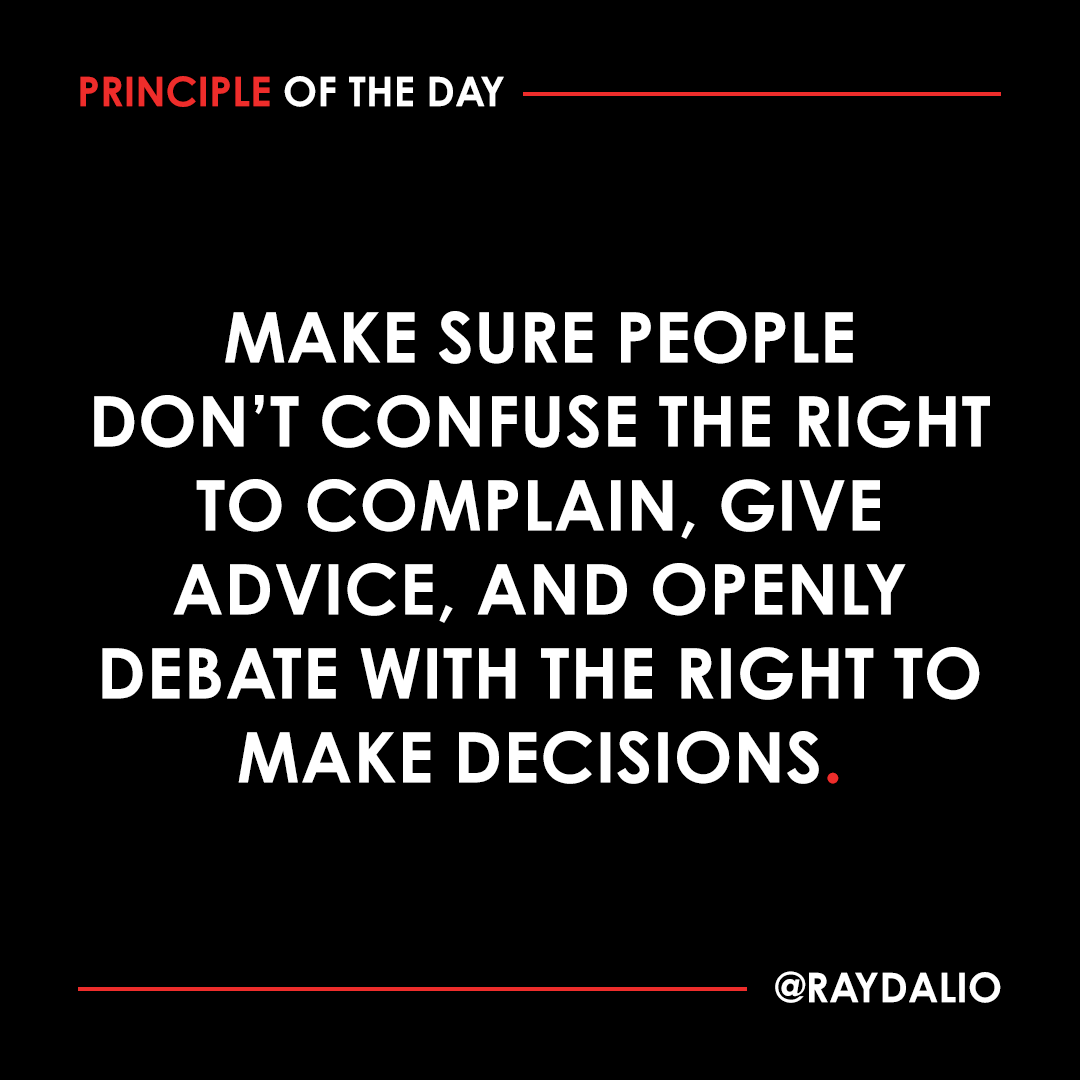
A decision-making group in which those who don't get what they want continue to fight rather than work for what the group has decided is destined to fail... #principleoftheday (1/4) 

...you can see this happening all the time in companies, organizations, and even political systems and nations. I'm not saying that people should pretend they like the decision if they don't, or that the matter in question can't be revisited at a future date. (2/4)
What I am saying is that in order to be effective, all groups that work together have to operate with protocols that allow time for disagreements to be explored... (3/4)
...but in which dissenting minority parties recognize that group cohesion supersedes their individual desires once they have been overruled.
The group is more important than the individual; don't behave in a way that undermines the chosen path. (4/4)
The group is more important than the individual; don't behave in a way that undermines the chosen path. (4/4)
• • •
Missing some Tweet in this thread? You can try to
force a refresh










